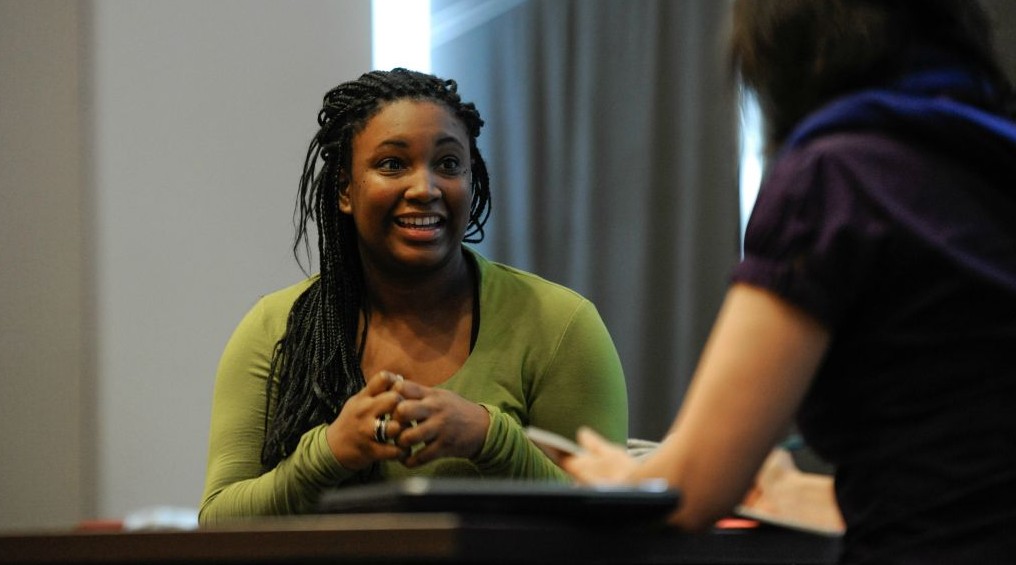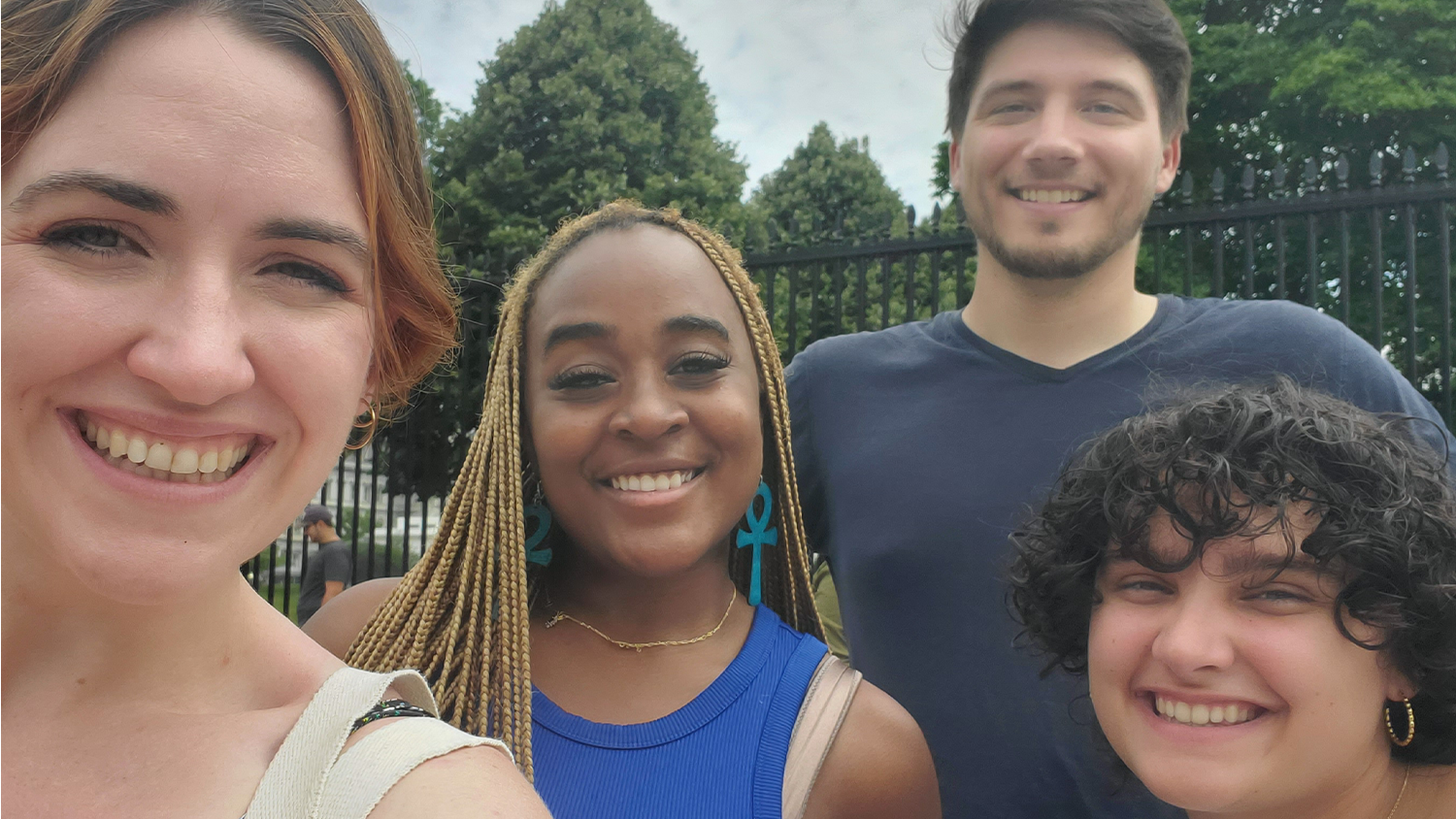Theater Delta Presents at NC State: Interactive Theater for Social Change

Can actors teach mentors how to become better mentors?
Ben Saypol, Director of Chapel Hill-based Theater Delta, says yes.
In late March, the NC State Graduate School sponsored Theater Delta to engage with approximately 40 people gathered in a campus auditorium for an interactive workshop concerning mentorship. Employing a troop of professional actors, Saypol demonstrates how good mentorship can be cultivated through communication techniques, smoothing the balance of power inherent in hierarchal relationships.
Between each vignette, Saypol acted as facilitator and dramatic navigator, helping the audience of Graduate School staff and faculty members understand precisely how and why the student/professor interactions had failed or succeeded.
Theater Delta works with clients in academia, government and business. The group presented scenarios demonstrating how mentor relationships are strengthened or weakened by the way mentors and mentees communicate.
Saypol stressed that long after mentorship relationships are over and possibly forgotten, “What people would remember is how they were treated.” Strong mentorship requires consciously addressing the inbalance of underlying mentor/mentee relationships.
During Theater Delta’s dramatically enacted vignettes, fictional students had to deal with several issues, including indifference and possible racial bias on the part of their mentors. Saypol discussed trust as a defining factor, underpinning hierarchal relationships such as those between a mentor and mentee. He taught the audience techniques for more balanced, equitable and respectful relationships.
“Give others the benefit of the doubt,” Saypol advised. Balancing inequities in relationships demands thoughtful consciousness, he stressed.
The various dramatic scenarios delineated often uncomfortable social issues –underscored by unconscious bias, lack of awareness and poor listening techniques. Afterward, Saypol explained how fair play in relationships demands conscious listening and attending to the other. An important distinction was made between deep and active listening when navigating hierarchal relationships. (E.g., deep listening requires the listener remain respectfully silent; but active listening means not interrupting and echoing points back before proceeding.) He also advocated framing points of view in terms of one’s own personal experience in order to be more relatable.
Saypol holds a doctorate in theater, and has studied interactive theatre, theatre of the oppressed, and other community based theater techniques. Theater Delta has developed interactive theater projects intended to promote social change. Their work with academic, government, business and medical clients addresses a wide variety of topics, from mentorship to academic topics.
For Further Information: A free download via the University of Michigan’s Rackham Graduate School website offers a PDF for faculty on how to mentor graduate students, and for students on how to get the mentoring you want.
- Categories:


